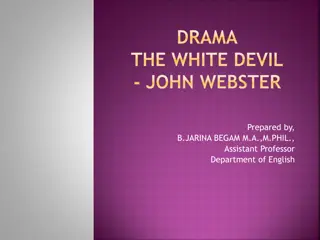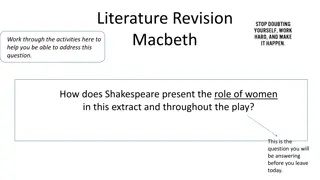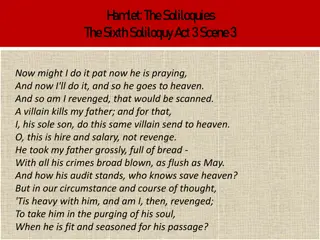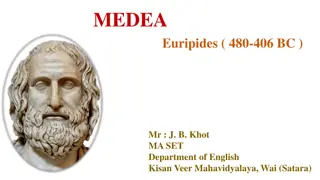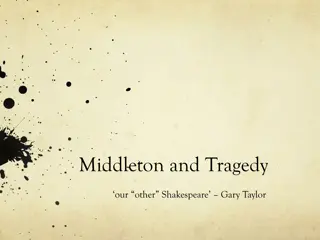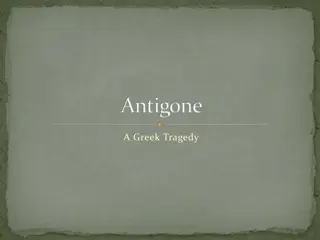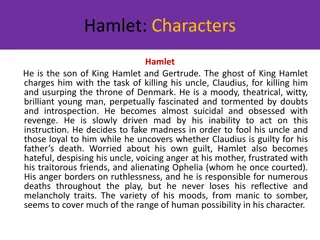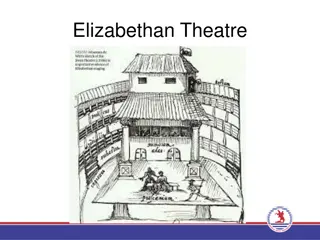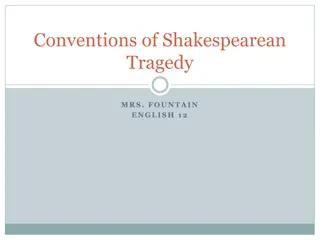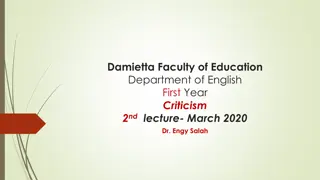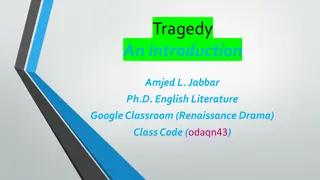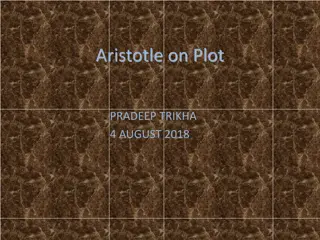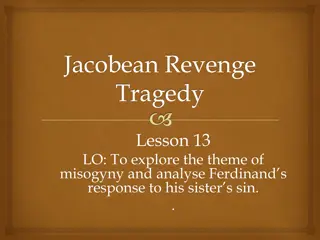Dedication and Commendatory Verses in Jacobean Revenge Tragedy Lesson
In this lesson, we delve into the Dedication and Commendatory Verses of Jacobean Revenge Tragedy plays, particularly focusing on Thomas Middleton's commendation in Latin, Webster's dedication to George Harding, and the significance of Latin in academia. Through analysis of these elements, we gain insights into the nobility, themes, and context of these works.
Download Presentation

Please find below an Image/Link to download the presentation.
The content on the website is provided AS IS for your information and personal use only. It may not be sold, licensed, or shared on other websites without obtaining consent from the author. Download presentation by click this link. If you encounter any issues during the download, it is possible that the publisher has removed the file from their server.
E N D
Presentation Transcript
Jacobean Revenge Tragedy Lesson 3 LO: In this lesson you will: Explore the Dedication and Commendatory Verses Consider Webster s views of the nobility and the effect on our understanding of the play s themes. To explore modern and contemporary reviews of TDOM
Starter From the OU film what important difference is there between the original text and the performance text?
Websters Patron George Harding supported important writers in Jacobean era. Why do you think Webster dedicates The Duchess of Malfi to Harding? What does he say about Harding/the play and himself? What can we learn about his view of the nobility?
Thomas Middleton [ ] thy note Be ever plainness, tis the richest coat. Thy epitaph only the title be, Write: Duchess : that will fetch a tear for thee, For whoe er saw this Duchess live and die That could get off under a bleeding eye? In Tragaediam. Ut lux ex tenebris ictu percussa Tonantis, Illa, ruina malis, claris fit vita poetis In pairs, discuss this part of the commendatory verse. What does Middleton mean? Why does he write in Latin at the end?
Translation To Tragedy: As light springs from darkness at the blow of the Thundered (Jove), even so may tragedy be the lightening that brings ruin to the wicked and life to famous poets. Thomas Middleton
Why Latin? In the academic arena, Latin was very important as part of the humanist ideal of one who excelled in both contemplation and service to the state (Rice Jr. 106). In the English Renaissance the revival of interest in classical learning made Latin an indispensable skill for studying the classical authors such as Virgil, Ovid, and Homer (Ogilvie 6). However, just as the Anglo-Saxon clerics translated their Latin texts into Old English, an increased demand for the translation of these classics into English resulted a practice that resulted in an influx of Latin loanwords (Millward 225). The knowledge of Latin was important both academically and in international relations: it provided a common medium through which the educated elite of the Early Modern Period could share ideas and discoveries, and with no political affiliation, Latin was a neutral mode of communication (Burke 35 my emphasis). Speaking Latin was the sign of the educated elite and the only guaranteed manner of reaching an international audience (Burke 32, 35). Giovanni, A (2003), Latin in English 1500-1800
Commendations In pairs, read and summarise Rowley and Ford s commendations. What do they tell you about: The text Webster s skill as a writer The context of the play?
Criticism Read the critical extracts you have been given. What conclusions can you draw about the play from them? How did views of the play change over time? Are there any contradictions in these views? What seem to be the key weaknesses/strengths of the text for critics?
Websters critical history Did not gain prominence in his own time. Detractors did not value his work because (despite his use of fine poetry) drama as literature was still viewed as inferior to other genres. Some (not all) of his contemporaries (e.g. Middleton and Ford) heaped praise upon his work. 19th Century critics were divided in their opinions of Webster. Modern audiences and critics found the language too melodramatic and audiences were reduced to laughter rather than tears.
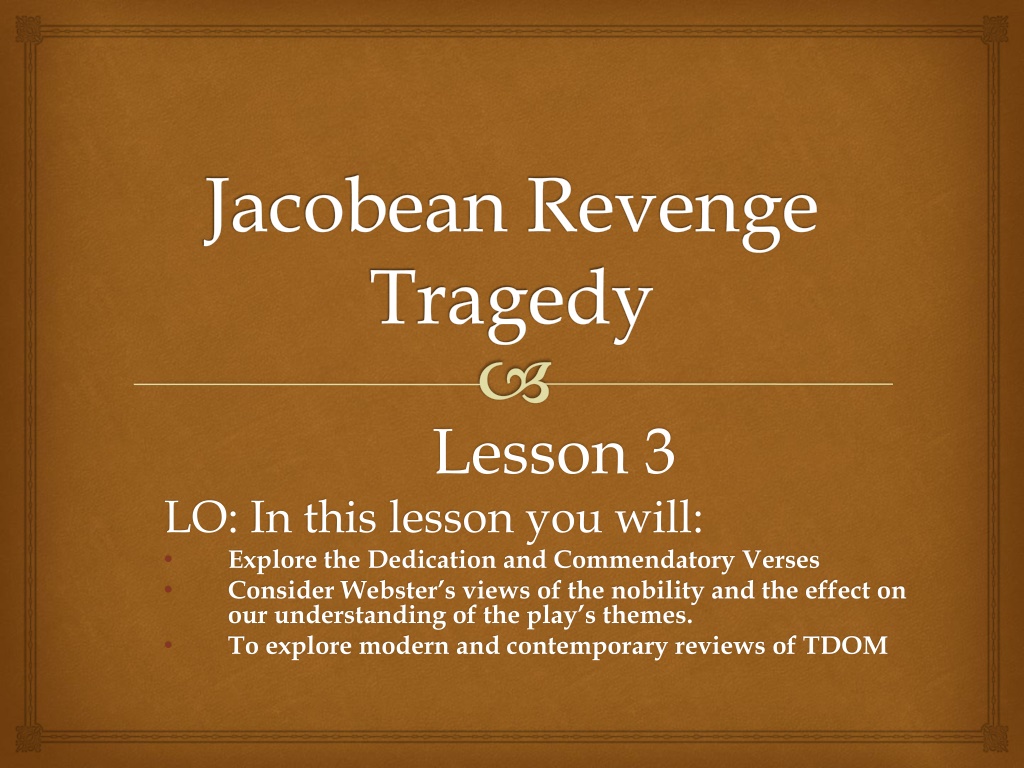
 undefined
undefined






